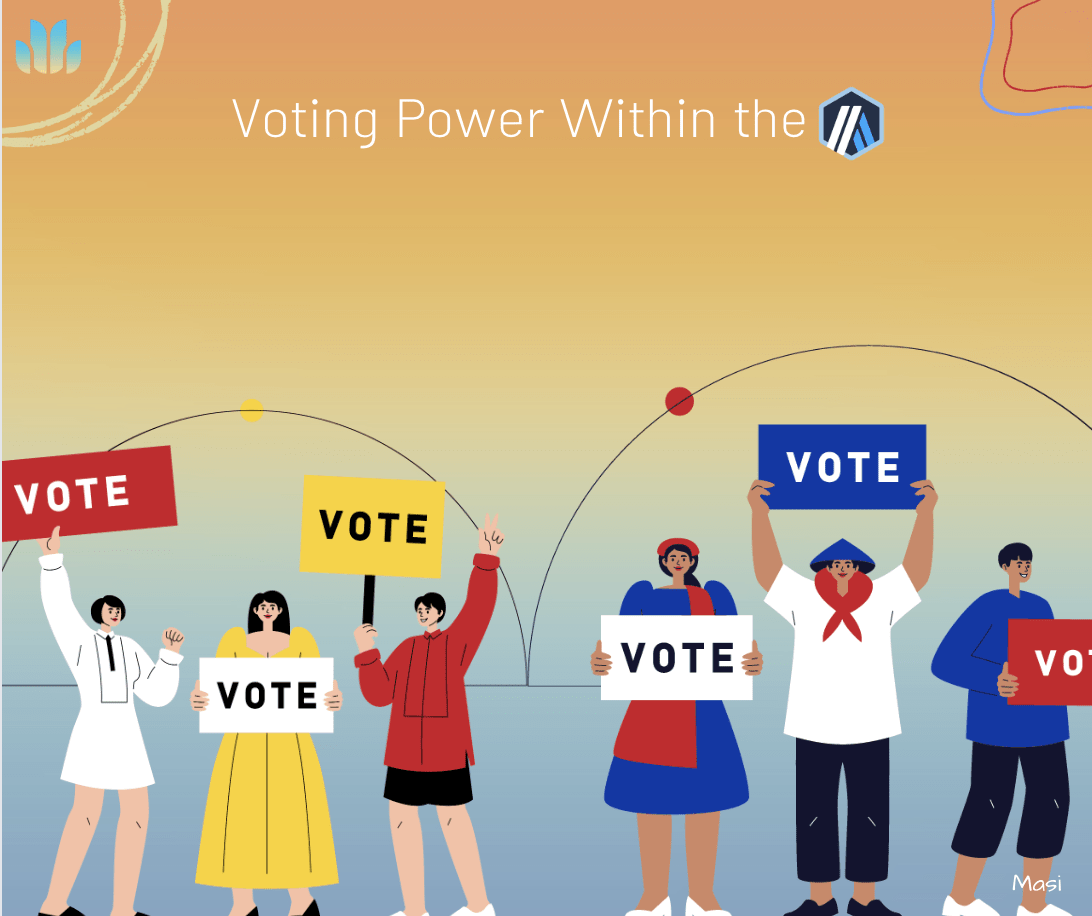Voting Power Within the Arbitrum DAO

In many blockchain-based cryptocurrency networks, decisions about the direction and development of the network are made through a community governance process. This typically involves an on-chain voting system, where token holders can use their voting power to help decide on proposed changes or upgrades to the network. Voting power is a token holder's influence in the decision-making process. Typically, voting power is proportional to the user's number of tokens. For example, if you hold 10% of the total tokens in a network, you would have 10% of the total voting power.On the other hand, the delegation allows token holders to delegate their voting power to another user or entity. This can be useful for users who may not have the time or expertise to participate in the voting process directly but still want to have a say in the governance of the network. When a user delegates their voting power, they transfer their voting rights to another user, typically a trusted delegate or staking pool. The delegate can then vote on behalf of the user, using their combined voting power to make decisions about the network.
In summary, voting power and delegation are essential concepts in the governance of many cryptocurrency networks. Voting power determines a user's influence in decision-making, while delegation allows users to transfer their voting rights to other trusted entities.